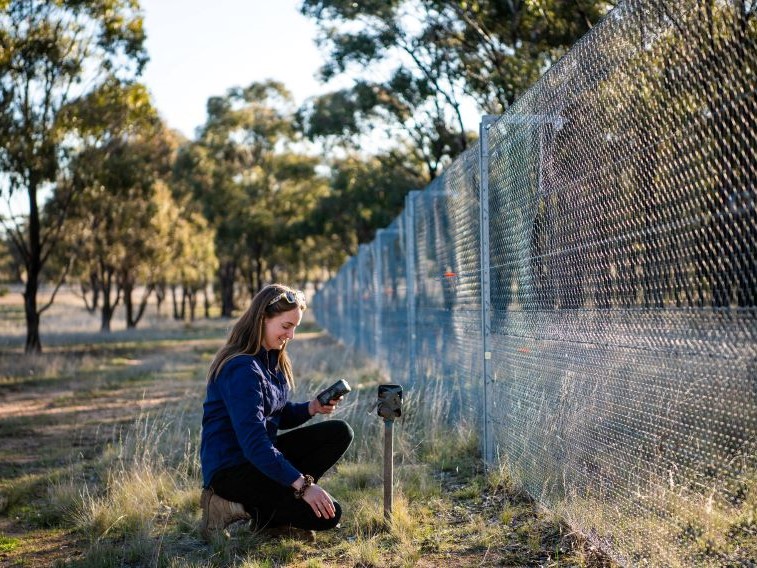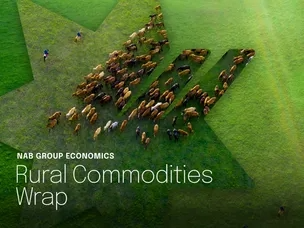28 May 2025
Download the 2025 NAB Regional and Agribusiness Horizons Report: Embracing Opportunity for data-led insights on the state of play in regional and rural Australia and the economic outlook for the remainder of 2025.
Oct 15, 2024
Tiverton Agriculture Impact Fund is leading the way with its transformative work at Orana Park, a 4,674-hectare property in Victoria, supported by NAB Green Finance for Agribusiness.
By Agribusiness View

Tiverton Agriculture Impact Fund is leading the way with its transformative work at Orana Park, a 4,674-hectare property in Victoria, supported by NAB Green Finance for Agribusiness.
Tiverton’s portfolio includes owned demonstration farms that showcase the benefits of transitioning from conventional farming to sustainable and regenerative agriculture, as well as business operations which provide asset services and products for landholders.
Nigel Sharp, Director and CEO of Tiverton Agriculture Impact Fund, said Tiverton is proving that farming can regenerate the environment and be a crucial part of Australia’s climate solution.
“We’re rejuvenating soils and improving plant health to create more resilient farming and healthier crops. At Orana Park, our focus is on increasing soil carbon, enhancing water retention, and producing higher-quality crops. These efforts are already leading to improved resilience and productivity,” Mr Sharp said.
NAB Executive for Regional and Agribusiness Khan Horne said many primary producers across Australia were adapting to today’s economic challenges by investing in long-term sustainable practices.
“Our customers recognise the economic and environmental benefits of reducing their carbon footprint,” Mr Horne said.
“NAB Green Finance for Agribusiness has been developed to support customers to invest in activities that reduce emissions and build climate resilience such as protecting soil health and reforestation, while importantly enhancing resilience to climate change.
“There are opportunities for Australian businesses as we move towards net zero. As Australia’s largest business lender1 , we remain ready to support customers on their transition journey and to help provide the funding they need.”
At Orana Park, Tiverton combines advanced farming methods with conservation efforts, including an extensive soil carbon project, on-site organic fertiliser production, and minimal chemical use.
“NAB Green Finance for Agribusiness is important to help us scale our regenerative agriculture model. It’s not just about healthier soils; it’s about restoring ecosystems, protecting wildlife and promoting natural capital. This holistic approach to farming will become more popular, and Orana Park is a demonstration of what can be achieved” Mr Sharp said.
As Nigel Sharp explains, Tiverton collaborates closely with other producers to share expertise and encourage the adoption of similar conservation efforts across agricultural landscapes.
“We’re committed to knowledge sharing, helping other producers implement carbon management strategies. Our goal is to build a circle of agriculture that promotes sustainability and enhances biodiversity,” Mr Sharp said.
“Tiverton also collaborates with local Indigenous groups to support their conservation initiatives, focusing on carbon neutrality and helping First Nations communities develop their own carbon plans.”
Water management is another priority at Orana Park. By enhancing soil health, Tiverton increases water-holding capacity and optimises irrigation, ensuring efficient use of water resources.
With the backing of NAB Green Finance for Agribusiness, Tiverton Agriculture Impact Fund continues to pioneer regenerative and conservation initiatives, reinforcing the farm’s leadership in sustainable agriculture and delivering long-term benefits for both the environment and the agricultural sector.
For more information on NAB Green Finance for Agribusiness, please visit: https://www.nab.com.au/business/loans-and-finance/agribusiness-loans/green-finance-agri, opens in new window
The information contained in this article is believed to be reliable as at October 2024 and is intended to be of a general nature only. It has been prepared without taking into account any person’s objectives, financial situation or needs. Before acting on this information, NAB recommends that you consider whether it is appropriate for your circumstances. NAB recommends that you seek independent legal, property, financial and taxation advice before acting on any information in this article.
Applications for credit are subject to NAB’s eligibility, lending and credit approval criteria and security requirements. Terms and conditions apply to NAB products and are available upon request. Fees and charges are payable. You should consider the relevant Product Disclosure Statement or other disclosure document, available from NAB, before making any decisions regarding any product. A NAB Green Finance for Agribusiness may only be provided as a new NAB Business Markets Loan or new NAB Corporate Markets Loan. Target Market Determinations for these products are available at nab.com.au/TMD.
1.Based on Australian Prudential Regulation Authority monthly Authorised Deposit-Taking Institution statistics (table 2, non-financial businesses) as at September 2024, published as at October 2024
©2024 National Australia Bank Limited ABN 12 004 044 937 AFSL and Australian Credit Licence 230686.
Agribusiness Regional

REPORT
28 May 2025
Download the 2025 NAB Regional and Agribusiness Horizons Report: Embracing Opportunity for data-led insights on the state of play in regional and rural Australia and the economic outlook for the remainder of 2025.
